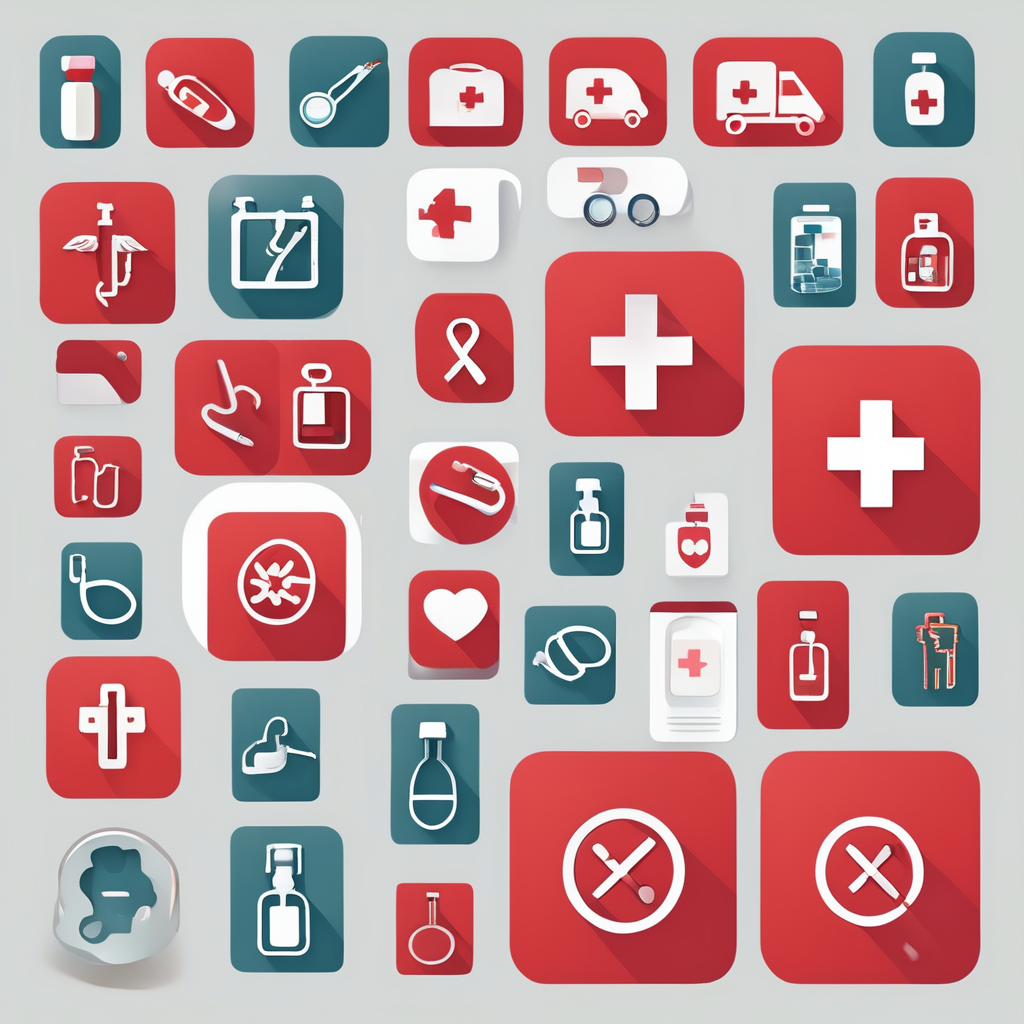Impact of Artificial Intelligence on UK Healthcare
Artificial Intelligence in healthcare UK is revolutionising diagnosis and treatment by enabling faster, more accurate analyses. AI-driven algorithms assist clinicians in interpreting medical images and lab results, reducing human error and enabling early disease detection. This precision leads to AI patient care improvements such as personalised treatment plans tailored to individual patient data patterns.
Moreover, AI enhances patient care through sophisticated data analysis. By continuously processing vast amounts of health records, AI systems can identify trends and predict complications, thereby supporting proactive interventions. This not only optimises clinical decision-making but fosters better patient outcomes.
In parallel : What Are the Historical Influences on Health Trends in the UK?
AI healthcare efficiency is also evident in streamlining hospital operations. Automated administrative tasks and optimised scheduling free up staff to focus on direct care. In clinical workflows, AI-powered tools automate routine assessments and documentation, improving time management and reducing burnout.
Collectively, these advancements underline how AI in healthcare UK is transforming both clinical practice and system management, highlighting the technology’s potential to support a more responsive, effective healthcare environment.
Have you seen this : How Can Incorporating Mental Well-being Strategies Help Manage Chronic Illness in the UK?
Telemedicine Advancements Transforming Accessibility
Telemedicine UK healthcare has expanded rapidly, bridging gaps between urban hospitals and rural communities through remote patient consultations. This growth allows patients to receive timely care without the burden of travel, promoting continuity and convenience in healthcare access. Telemedicine reduces wait times and improves follow-up adherence, which enhances overall health outcomes.
A key benefit of telemedicine UK healthcare is its support for patients with mobility challenges or chronic conditions requiring frequent monitoring. Remote consultations facilitate ongoing communication between patients and clinicians, ensuring issues are addressed promptly. This method also helps alleviate pressure on healthcare facilities by managing less critical cases virtually.
Despite these advantages, integration challenges remain. Digital health platforms must ensure interoperability with existing NHS systems and maintain secure, user-friendly interfaces. Addressing connectivity issues in underserved regions is also crucial. Solutions include investing in robust broadband infrastructure and offering training for both patients and providers on telehealth tools.
By overcoming these challenges, telemedicine UK healthcare can significantly increase digital health accessibility. This transformation enables a more inclusive system, ensuring patients nationwide benefit from continuous, high-quality care without geographic barriers.
Impact of Artificial Intelligence on UK Healthcare
Artificial Intelligence in healthcare UK is significantly advancing diagnosis and treatment accuracy. AI algorithms analyse medical images and patient data swiftly, identifying conditions like cancer or heart disease earlier than traditional methods. This precision contributes directly to AI patient care improvements, enabling clinicians to tailor therapies uniquely to each patient’s genetic and clinical profile.
Beyond diagnostics, AI excels in processing complex health records to forecast complications before they arise. For example, predictive models highlight patients at risk of hospital readmission, allowing timely preventative care. Such data-driven insights enhance clinical decisions, elevating patient safety and outcomes.
In terms of AI healthcare efficiency, hospitals leverage AI to automate routine administrative duties such as appointment scheduling, prescription management, and documentation. This automation frees healthcare staff to devote more time to patient interaction. Meanwhile, clinical workflows benefit from AI-powered triage tools that prioritise urgent cases, streamlining resource allocation.
Overall, AI in healthcare UK marries technological sophistication with practical application, boosting diagnostic precision, personalised care, and operational productivity. This multi-faceted impact places AI at the core of modernising the NHS and improving patient experiences nationwide.
Wearable Technology and Remote Monitoring in Patient Care
Wearable health devices UK are transforming chronic disease management by enabling continuous, real-time monitoring outside clinical settings. These devices collect vital signs such as heart rate, blood pressure, and glucose levels, offering clinicians timely data for remote patient monitoring benefits. This ongoing surveillance supports early intervention, reducing hospital admissions and improving chronic condition control.
Health data tracking technologies empower patients by facilitating self-monitoring and personalised health insights. Patients gain immediate feedback on their wellbeing, encouraging adherence to treatment plans and lifestyle changes. Additionally, integration of this data into electronic health records helps clinicians make informed decisions swiftly.
The impact extends to clinical workflow efficiency as remote monitoring reduces unnecessary in-person visits, freeing resources for more critical cases. For instance, patients with hypertension or diabetes can be managed effectively via wearable devices, which transmit alerts if readings deviate from predefined parameters.
In summary, wearable health devices UK enhance both patient autonomy and healthcare system responsiveness. This synergy between technology and care creates a proactive environment where health outcomes improve through timely data and patient engagement, illustrating robust benefits of wearable technology in modern healthcare.
Impact of Artificial Intelligence on UK Healthcare
Artificial Intelligence in healthcare UK is increasingly integral to enhancing diagnostic accuracy and treatment precision. AI algorithms rapidly analyse complex patient data, including medical images and genetic information, enabling earlier detection of diseases like cancer and cardiovascular conditions. This capability directly supports AI patient care improvements by providing personalised treatment recommendations tailored precisely to individual profiles.
Furthermore, AI-driven data analysis extends beyond diagnostics. Predictive models process vast health datasets to identify patients at risk of complications or readmission, allowing clinicians to intervene proactively. Such insights improve chronic disease management and reduce adverse events, demonstrating tangible benefits in patient safety.
Efficiency gains are notable within hospital and clinical workflows. AI automates routine administrative tasks—scheduling, record-keeping, prescription management—freeing medical staff to prioritise patient interaction. In clinical settings, AI-powered triage systems streamline workflow by prioritising urgent cases, optimising resource allocation and reducing delays in care delivery.
The synergy of diagnostic enhancement, predictive analytics, and workflow automation exemplifies the multifaceted role of AI in UK healthcare, underpinning improvements in care quality and operational productivity simultaneously.
Impact of Artificial Intelligence on UK Healthcare
Artificial Intelligence in healthcare UK significantly improves both diagnosis and treatment through advanced data processing and pattern recognition. AI algorithms analyse medical images and complex patient data swiftly, enabling earlier detection of diseases such as cancer and heart disease. This precision directly contributes to AI patient care improvements, allowing clinicians to customise treatment plans based on individual genetic and clinical information.
In addition to diagnostics, AI-driven data analysis forecasts patient risks by identifying trends within large datasets. For example, predictive models detect those at risk of hospital readmission, supporting timely preventive interventions. Such insights reduce complications and improve patient safety, illustrating the profound impact of AI on healthcare outcomes.
AI healthcare efficiency is also evident in streamlining hospital workflows. Automating administrative tasks such as appointment scheduling, medication management, and documentation frees medical professionals to focus on direct patient care. Moreover, AI-powered triage systems prioritise urgent cases, enhancing resource allocation and reducing waiting times in clinical settings.
Collectively, these applications show how Artificial Intelligence in healthcare UK advances accuracy, personalisation, and operational productivity simultaneously, forming a foundation for modern, patient-centred care delivery.
Impact of Artificial Intelligence on UK Healthcare
Artificial Intelligence in healthcare UK is transforming diagnosis and treatment by delivering rapid, precise analyses of medical images and complex patient data. AI algorithms detect conditions such as cancer and cardiovascular diseases earlier, contributing to notable AI patient care improvements by enabling clinicians to offer personalised therapies tailored to each patient’s unique health profile.
Beyond initial diagnosis, AI-driven data analysis enhances patient care by identifying patterns in extensive health records. This allows for accurate risk prediction, supporting proactive management and reducing hospital readmissions. For example, patient deterioration can be forecasted, prompting timely interventions that improve safety and outcomes.
AI healthcare efficiency gains are achieved through the automation of repetitive tasks like scheduling, records management, and medication handling. These efficiencies free clinical staff to focus on direct patient care, reducing workload and burnout. Additionally, AI-powered triage and prioritisation systems optimise clinical workflows by ensuring urgent cases receive prompt attention, thereby improving resource allocation within hospitals.
Together, these innovations illustrate how Artificial Intelligence in healthcare UK promotes higher diagnostic accuracy, enhanced patient care, and streamlined operations, positioning AI as a key driver of NHS modernisation and improved healthcare delivery.

